The OTC Markets: A Beginners Guide To Over-The-Counter Trading
Content
Learn more about OTC trading markets, what it entails and how to get started with OTC trading today. The Over-the-Counter (OTC) trading service (“OTC Trading Service”) allows Crypto.com’s selected institutional and VIPs to place large block orders and receive custom quotes instantly. OTC trading is also available to US institutional clients as a standalone service what does otc stock mean separate from the Exchange (“OTC Trading (US) Service”).
What are the risks of OTC trading?
- To get into the stock, an investor would need to pay the asking price of $0.10 per share, and can only exit the position at $0.05 per share.
- In Principal OTC Trading, the OTC desk uses its own funds to buy or sell cryptocurrency for the customer.
- It does not require any SEC regulation or financial reporting, and includes a high number of shell companies.
- These brokers may provide access to a wider range of OTC securities but may also charge higher fees or have more stringent account requirements or minimum transaction sizes.
- Their listing fees can go up to $150,000, depending on the size of the company.
Also, you can trade many OTC securities using most mainstream brokerage accounts. But OTC networks lack the rigorous financial reporting and transparency standards of major stock exchanges, so extra caution https://www.xcritical.com/ and due diligence is required from investors. OTC markets provide access to securities not listed on major exchanges, including shares of foreign companies.
How Does an Investor Buy a Security on the OTC Market?
The process of purchasing or selling over-the-counter (OTC) stocks can be different from trading stocks listed on the New York Stock Exchange (NYSE) or the Nasdaq. This is because OTC stocks are, by definition, not listed on the exchange. Purchases of OTC securities are made through market makers who carry an inventory of stocks and bonds that they make available directly to buyers.
What is Crypto OTC Trading and How Does it Work?
Furthermore, they only provide trading in Ethereum tokens at the moment but will presumably add other blockchain tokens as the platform develops. The Grey Market is an unofficial market for securities that do not meet the requirements of other tiers. Usually, there is no or little information about the business itself, or financial reports.
You’re our first priority.Every time.
Shares often trade infrequently, making it hard to buy or sell when the investor wants. OTC platforms manage large trades by tapping into deep liquidity pools and networks, facilitating transactions efficiently and privately. They handle all aspects of the trade, from quote negotiations to final settlement, without causing market disruption. The uniqueness of Yellow Card’s commercial trading lies in our clients’ satisfaction. With Yellow Card, clients can buy any amount of USDT, BTC, ETH, or any other coin with no limitations or restrictions. This is achieved as our team of expert traders takes your demands personally and handles them with all the integrity and professionalism required to keep you satisfied and impressed.
Understanding Over-the-Counter (OTC) Markets
For many traders, the key advantage of OTC trading is its ability to offer privacy, reduced market impact, and tailored services, making it an ideal choice for those conducting large transactions. In addition, OTC cryptocurrency deal resolution is typically quicker and more adaptable than that of traditional exchanges, taking into account the many settlement options that counterparties need. Additional information about your broker can be found by clicking here.
What is an over-the-counter market?
The American depositary receipts (ADRs) of many companies trade on OTC markets. The markets where people buy and sell stock come in several different flavors. Any estimates based on past performance do not a guarantee future performance, and prior to making any investment you should discuss your specific investment needs or seek advice from a qualified professional. These schemes often use OTC stocks because they are relatively unknown and unmonitored compared to exchange-traded stocks. FINRA’s responsibilities include monitoring trading activities, enforcing compliance, and handling disputes. Broker-dealers must follow Rule 15c2-11 when initiating or resuming quotations in OTC securities, which includes submitting Form 211 to FINRA to demonstrate compliance.
What Is the Marketplace for OTC Stocks?
How securities are traded plays a critical role in price determination and stability. The OTC market also consists of shares of companies that do not wish to meet strict exchange requirements. Some businesses do not want to pay the cost the exchanges charge. The NYSE has a schedule of fees and charges for its exchange services. Their listing fees can go up to $150,000, depending on the size of the company.
Or they might meet listing requirements, but management doesn’t want to pay listing fees. Sketchy companies stay off the listed exchanges to avoid scrutiny and regulation. Over-the-counter stocks don’t trade on a regulated exchange such as the NYSE or the NASDAQ. In most cases, they’re trading OTC because they don’t meet the stringent listing requirements of the major stock exchanges.
Many, or all, of the products featured on this page are from our advertising partners who compensate us when you take certain actions on our website or click to take an action on their website. OTC Markets Group, the largest electronic marketplace for OTC securities, groups securities by tier based on the quality and quantity of information the companies report. Many companies that trade over the counter are seen as having great potential because they are developing a new product or technology, or conducting promising research and development. Yarilet Perez is an experienced multimedia journalist and fact-checker with a Master of Science in Journalism.
While it’s listed on the SIX Swiss Stock Exchange, the company’s shares are only available as ADRs through the Pink Sheets in the U.S. Another notable difference between the two is that on an exchange, supply and demand determine the price of the assets. In OTC markets, the broker-dealer determines the security’s price, which means less transparency. There’s a possibility that there could be fraud at the very lowest level of the pink sheet market,” he says.
Moreover, on OTC Markets, it is possible to find investment products that are not presented on securities exchanges (e.g., bonds, derivatives, cryptocurrencies, etc.). To list on the OTC exchanges, companies must have FINRA-approved broker-dealer sponsors. And they must have at least three broker-dealers willing to trade the security. Swiss food and drink company Nestle (NSRGY -0.43%) is an example of a major company that trades OTC in the U.S.
He added that money transfers from them had been « very strange », without elaborating. Requirements for international companies and banks vary slightly. Companies in the Pink market are now required to disclose their financials. Companies in the Expert Market provide the lowest level of disclosure, with trading in this market, as a result, limited to quotation on an unsolicited basis. Yellow Card is a pan-African Fintech company operating across 20 countries. We are the largest and first licensed Stablecoin on-ramp/off-ramp on the African continent.
“Because there’s less regulation, they’re known to be targets of market manipulation where prices can be manipulated. It involves a lot of risk because you’re buying typically less reputable securities. Let’s say a small company wants to sell its stock but doesn’t meet the prerequisites of an exchange, such as reaching a minimum share price or having a certain number of shareholders. Our partners cannot pay us to guarantee favorable reviews of their products or services. We believe everyone should be able to make financial decisions with confidence. Because financial statements and other disclosures are vital to investors, investors should know if their OTC security is required to file statements and should be cautious if it’s not mandated to do so.
Before we move on, it’s important to mention that there are some big differences between the OTC markets and the major exchanges like the NYSE and Nasdaq. Unlike the NYSE and Nasdaq, they don’t have a central physical location and use a network of broker-dealers that facilitates trades directly between investors. In contrast, the major exchanges have centralized locations and use matching technology to process trades immediately. For many years, people used the term « Pink market » to refer to any over-the-counter (OTC) security, meaning any investment not listed and traded on a major U.S. stock exchange.
While we strive to provide a wide range of offers, Bankrate does not include information about every financial or credit product or service. That said, the OTC market is also home to many American Depository Receipts (ADRs), which let investors buy shares of foreign companies. The fact that ADRs are traded over the counter doesn’t make the companies riskier for investment purposes. Most brokerages allow retail investors to trade on OTC markets, although they may have additional requirements due to the risk of OTC trades. Interactive Brokers, TradeStation, and Zacks Trade are all examples of brokers that offer OTC markets. In this article, we’ll examine what OTC markets are, how they differ from traditional stock exchanges, and the advantages and disadvantages for investors.
Public Investing is a wholly-owned subsidiary of Public Holdings, Inc. (“Public Holdings”). This is not an offer, solicitation of an offer, or advice to buy or sell securities or open a brokerage account in any jurisdiction where Public Investing is not registered. Securities products offered by Public Investing are not FDIC insured. Apex Clearing Corporation, our clearing firm, has additional insurance coverage in excess of the regular SIPC limits. Or maybe the company can’t afford or doesn’t want to pay the listing fees of major exchanges. Whatever the case, the company could sell its stock on the over-the-counter market instead, and it would be selling « unlisted stock » or OTC securities.
On one hand, regulators are biased and cater for the rich and on the other, OTC traders are brokering deals recklessly without any thought to safe investing. Elsewhere, very large crypto holders (whales) would prefer to make large trades without drawing too much attention and therefore seek out specialized brokers to make this happen. The crypto markets are evolving, and big and small players alike are looking for the best ways to get involved. We’re going to take a deep dive into OTC as it relates to crypto and find out what opportunities the virtual currency markets are opening up for a new class of investor. In contrast, NYSE regulations limit a stock’s symbol to three letters.
J.B. Maverick is an active trader, commodity futures broker, and stock market analyst 17+ years of experience, in addition to 10+ years of experience as a finance writer and book editor. OTC Markets Group operates the OTCQX Best Market, the OTCQB Venture Market, and the Pink Open Market. Although OTC networks are not formal exchanges such as the NYSE, they still have eligibility requirements determined by the SEC. At Yellow Card, our Commercial Trading uses the Principal desk- thereby assuming the risk for our clients.

